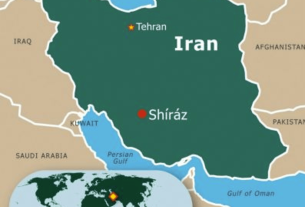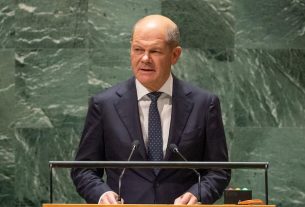Fitrat also pointed to “sanctions and restrictions” inhibiting efforts to combat economic challenges.
Restricting girls’ access to education
Limaye then challenged Fitrat to discuss the Taliban’s education policy, which has prevented girls from obtaining an education beyond the primary school level. Limaye said that some of the girls, willing to abide by the Taliban’s hijab and modesty laws, were having suicidal thoughts stemming from having their education restricted.
Fitrat responded that “our sisters’ education is an important issue” and claimed that the government was trying to find a solution. He assured that women were still able to maintain employment in various public sectors and insisted that the number of women in business had increased under the Taliban’s rule.
Returning to the issue of girls’ education, Limaye noted that it has been three years since girls were banned from attending school. She added that the Taliban had previously cited logistical challenges and the need for Islamic scholars to review the matter as reasons for the ban.
“Do you really expect people to believe that you are committed to doing it?” Limaye challenged.
Fitrat responded that the Taliban was awaiting a decision by the terror group’s leadership.
Continuing to probe, Limaye noted that new policies implemented by the government would pose further barriers to girls’ ability to attend school.
Limaye noted that these policies preventing education included the need to be escorted and laws on women’s clothing.
Fitrat answered that what is not permitted by law and Islam may become permissible “if it is driven out of necessity.”
The BBC interviewer, prefacing that it was Afghan nationals in the country criticizing the Taliban’s policy and not just the West, asked how Fitrit would respond to those who claimed the group’s interpretation of Sharia Law was wrong.
The Taliban official dismissed the claim, insisting that the Afghans who criticized the Taliban were finding the new rules “a little difficult for them” because other countries had influenced them.
Fitrat proceeded to claim that Western critics of the country’s hijab law failed to understand the realities of an Islamic society fully.
Arguing that the Taliban’s policies restricting the freedom of women were seeing funding reduced by international bodies for Afghanistan, the official asserted, “We are not prepared to divert from any law of Islam, at any cost, because these are our values.”
Fitrat countered that he believed some international bodies were using women’s rights issues as a cover and pressure tool to reach their goals.
“It is the international communities’ responsibility to increase their humanitarian aid for Afghans,” Fitrit told the interviewer, “due to recent natural disasters such as floods and climate change…we hope that the international community and organizations do not mix aid with politics…”
ISIS threat
Questioned on the threat that ISIS posed to the Taliban, Fitrat said that the majority of the terror group’s forces had been “eradicated.” He added that while there have been incidents of ISIS attacks in public places, the Taliban considered these “insignificant.”
The comments were made despite 14 people being killed and six wounded in an attack on Daykundi province on Thursday, which ISIS claimed responsibility for.



